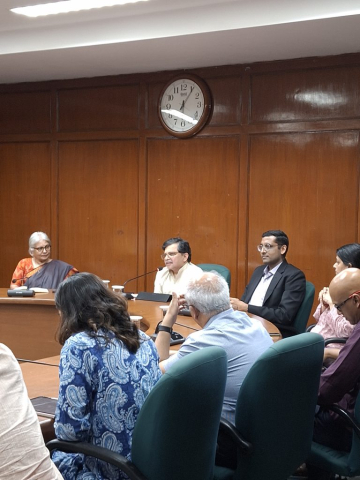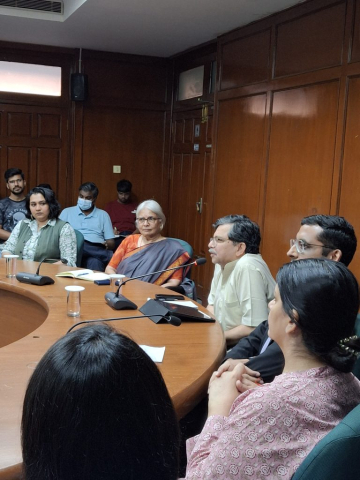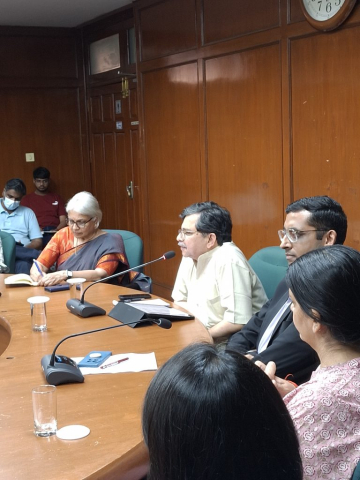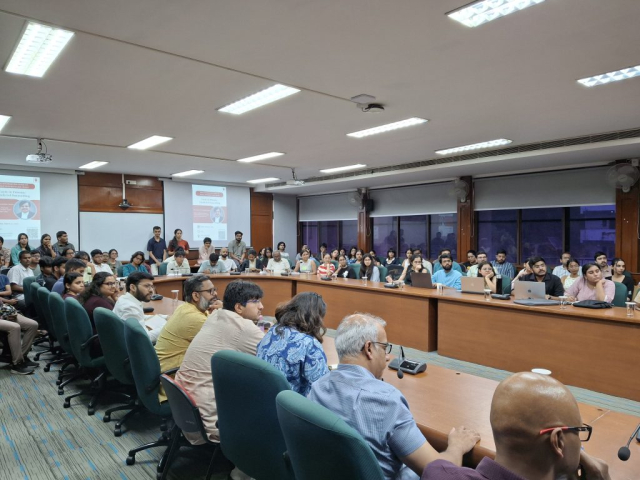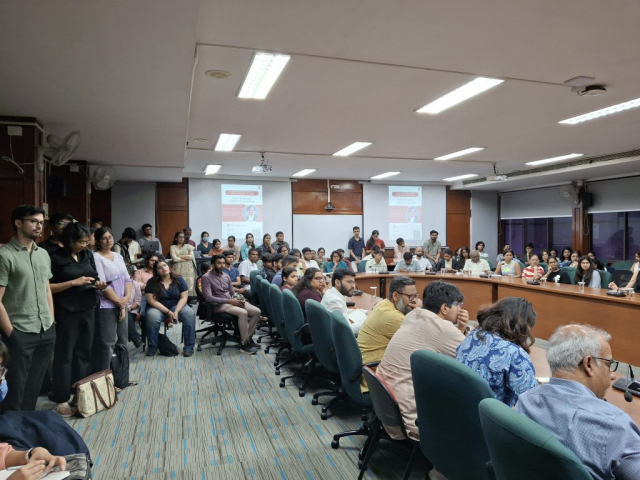Talk on ‘Caste in Prisons: A Judicial Unravelling’ | Ford Foundation Chair on Public Interest Law
Conference Hall, Training Centre
Friday, March 14, 2025, 6:00 pm
NLSIU’s Ford Foundation Chair on Public Interest Law is organising a talk titled ‘Caste in Prisons’: A Judicial Unravelling, being delivered by Dr. Justice S. Muralidhar.
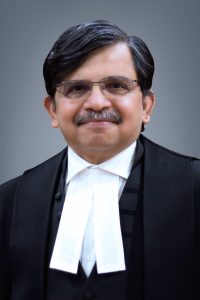 About the Talk
About the Talk
Prisons in India have a colonial legacy that has been built upon over the years with the basic administrative edifice and character remaining intact. This is most starkly reflected in the Prison Manuals that mirror all the caste and class biases that have endured through the centuries. While episodic judicial interventions over the years through PIL have sought to address some of the issues like overcrowding, solitary confinement and so on, it is not until the judgment delivered on 3rd October 2024 by the Supreme Court of India in Sukanya Shanta v. Union of India that a systematic analysis was undertaken while declaring unconstitutional the provisions that have given a ‘de jure’ legitimacy to the de facto constitutionally impermissible practice of caste-based segregation in prisons.
The talk will trace the background to the historic case of Sukanya Shanta v. Union of India, what the judgment signifies from a constitutional and sociological standpoint, the response it has received all round and the tasks that lay ahead not just for the Court but for all of us.
About the Speaker
Dr. Justice S. Muralidhar was appointed as a Judge of the High Court of Delhi on 29 May 2006. He became the Chief Justice of the High Court of Orissa on 4th January 2021 and retired on 7th August 2023. As a judge he delivered judgments in every branch of law including constitutional, commercial, arbitration law, tax and criminal laws. Many of the judgments have contributed to the development of law in that field. As Chief Justice of the High Court of Orissa, he spearheaded reforms on the administrative and judicial fronts both in the High Court and the district courts. The notable initiatives included the establishment of state-of-the-art centres for digitisation of records of the courts and the setting up of the Centre for Judicial Archives and the Museum of Justice in Cuttack. On 17 October 2023 Muralidhar was designated as Senior Advocate by the Supreme Court of India and has since returned to practice.
Excerpts from the talk
In a thoroughly enlightening lecture at the National Law School, Justice Muralidhar delivered a thought- provoking analysis of judicial review, the realities of India’s prison system, and the state of legal aid. His address, informed by historical cases, contemporary challenges, and philosophical reflections, shed light on how legal structures often reinforce pre-existing societal systemic injustices rather than dismantle them.
Justice Muralidhar’s lecture urged students, legal professionals, and scholars to rethink the role of courts, prisons, and lawyers in ensuring justice. Justice Muralidhar began his lecture by examining the function of judicial review, particularly in correcting injustices within the prison system. He traced the historical evolution of how Indian courts have interpreted constitutional rights for incarcerated individuals.
For decades, prisons operated as rigid, rule-bound institutions with little constitutional oversight. Justice Muralidhar highlighted that Prabhakar Pandurang (1964) was one of the first cases where the Supreme Court ruled that prisoners retain fundamental rights even while serving their sentences. However, the transformation was slow. He rejected the idea that judicial intervention in prisons is “activism”. Instead, he argued, such interventions are simply courts doing their constitutional duty at the bare minimum. Ensuring basic human rights in prisons—such as access to books, medical care, and protection from discrimination—should not be seen as extraordinary but as fundamental protections to be secured.
He explained that much of India’s criminal justice framework is inherited from colonial rule. The Defence of India Rules and similar statutes gave the state sweeping powers over prisoners. Even today, vestiges of these frameworks remain, limiting the rights of incarcerated individuals. He emphasized that while laws have changed, the administrative cultures within prisons are yet to be fully aligned with constitutional principles.
Read the full summary report here.
Watch the video
Gallery
Related News
Read our blog post with Justice Muralidhar:
The NLS Blog | Scholars in Conversation | Justice (Dr.) S. Muralidhar with Radhika Chitkara and Pranav Verma


